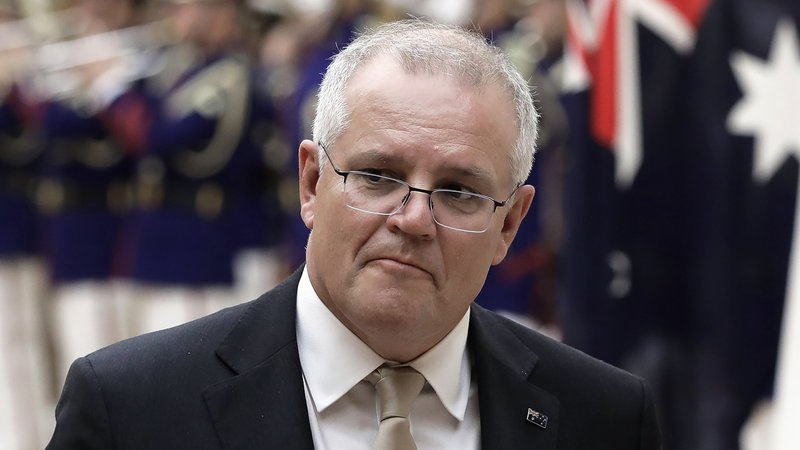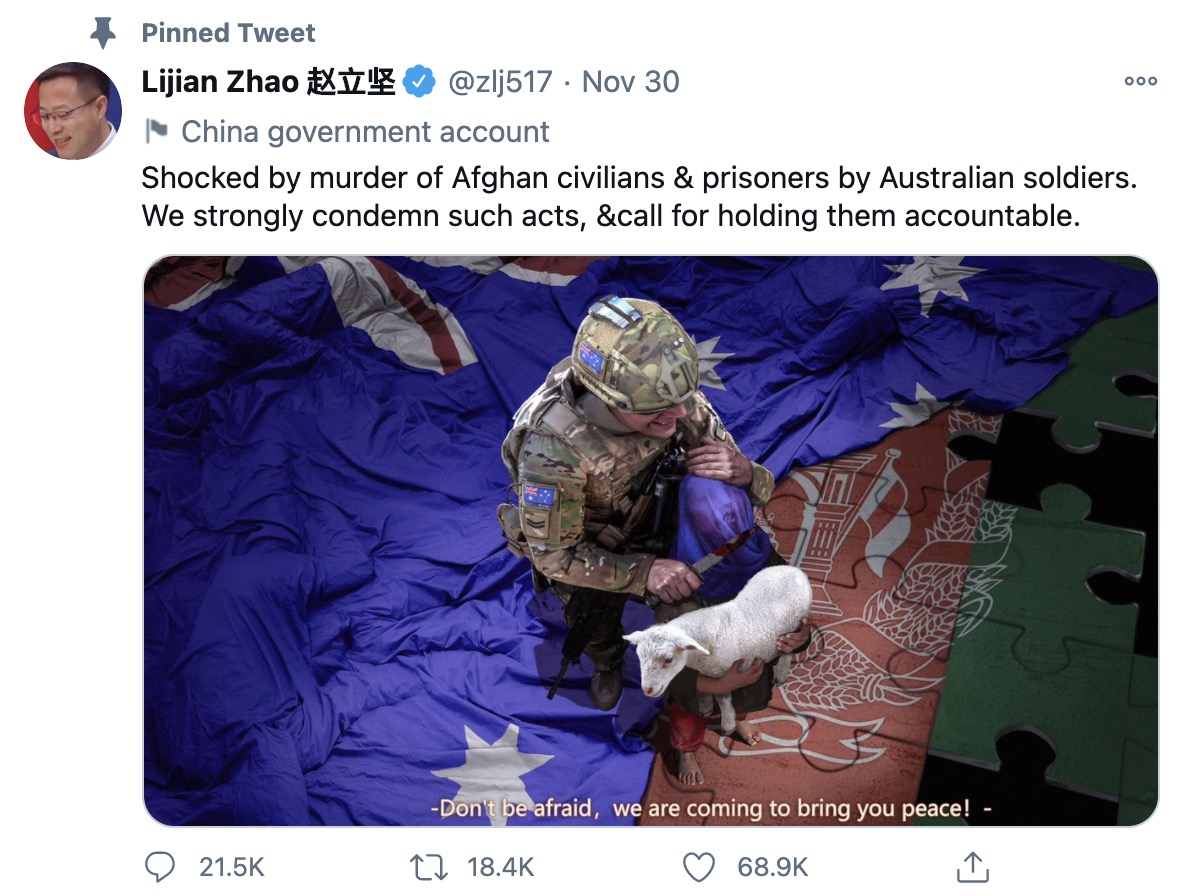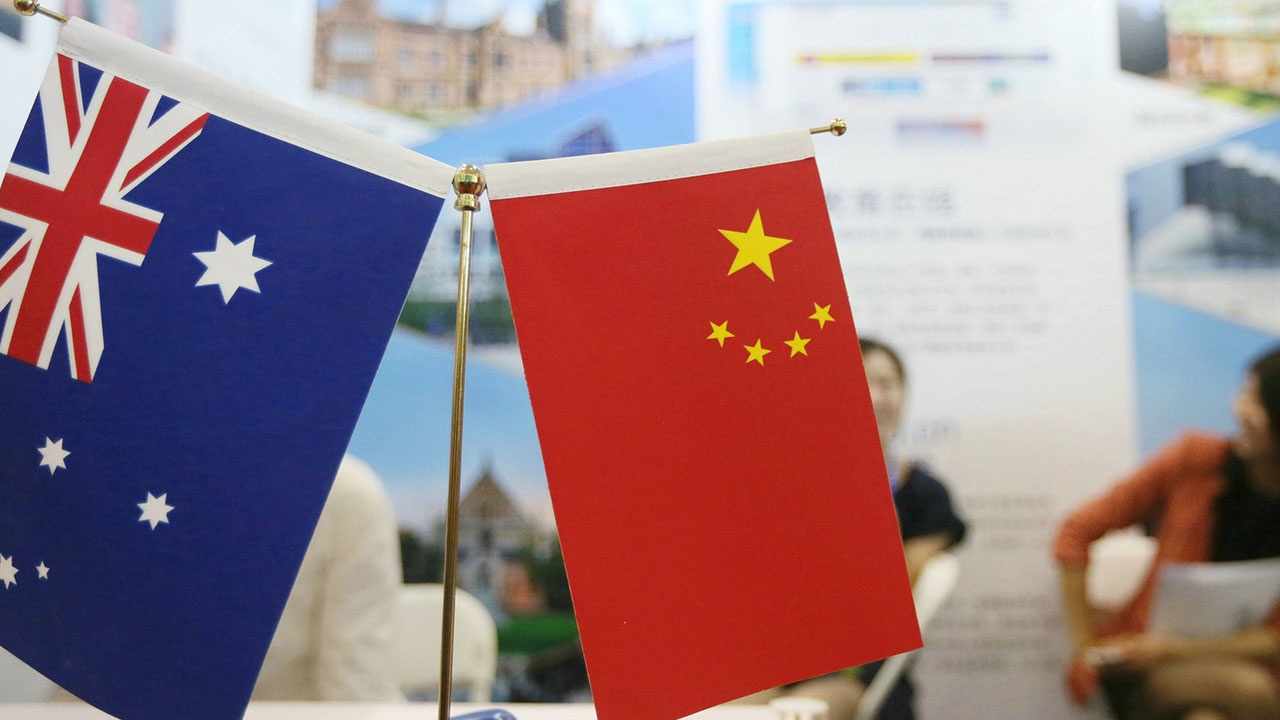
Australian Prime Minister Scott Morrison. /AP
Australian Prime Minister Scott Morrison. /AP
Editor's note: Zhao Minghao is a senior research fellow at the Charhar Institute and an adjunct fellow at the Chongyang Institute for Financial Studies at Renmin University of China. This translated and edited analysis reflects the author's views, which are not necessarily those of CGTN.
Australian Prime Minister Scott Morrison's government is looking to escalate its confrontational stance on China, backed by U.S. and UK officials. On December 3, the Australian parliament approved a bill to give the federal government final say on agreements reached between a state government and a foreign country. Under the new law, a 2018 deal on China's "Belt and Road Initiative" signed by the state of Victoria could be blocked by Canberra. If that happens, China-Australia relations will be further strained.
To Beijing, Canberra's displays of near "psychotic" tendency are increasingly bewildering. Although Morrison is reluctant to join the U.S. in its confrontation against China, he can't seem to resist acting confrontational toward the country.
The Australian side was upset by a tweet from a Chinese Foreign Ministry spokesperson. Even so, the prime minister's response was unnecessary when it could have come from an official of an appropriate level.

A screenshot of Zhao Lijian's Twitter post. /@zlj517
A screenshot of Zhao Lijian's Twitter post. /@zlj517
The image tweeted by Chinese Foreign Ministry spokesperson Zhao Lijian was not false information about the Australian military. The atrocities committed against Afghan civilians and children by some Australian soldiers are unforgivable and must be condemned and answered for.
In fact, these crimes are only a small part of the West's military violence in Afghanistan. The International Criminal Court (ICC) has launched an investigation into alleged war crimes in Afghanistan by foreign armies, including the U.S. army, despite ICC officials being threatened with reprisals from the Trump administration.
Canberra needs to reconsider its China policy. In 2018, Australia became the first country to ban Huawei from the construction of 5G networks. Frictions between the two countries have since worsened. In China's view, Australia is playing vanguard for Trump's America in applying maximum pressure on China, even if it means severe damage to the country's own interests.
At the end of the day, Morrison's government lacks respect for China deep down, but it is also incapable of coming up with a China policy independent of U.S. pressure. As a remotely located country, Australia is fearful of being abandoned by a major country – first Britain, and now the U.S. But it is facing a dilemma handling its relationships with China and with the U.S. at the same time. By going overboard on issues like the South China Sea, Hong Kong, Xinjiang and COVID-19, Morrison's government hoped to appease the Trump administration and thereby secure U.S. support. But it will be a misjudgment to think that its reckless sabotage of China-Australia relations is without consequences.
To quote a Chinese diplomat: If Canberra treats China like an enemy, it will be an enemy. Economic and trade ties have in recent years brought the countries closer, but Morrison's government is acting like it sees China as no more than a money tool.

China is Australia's biggest trading partner. /Reuters
China is Australia's biggest trading partner. /Reuters
China recently hit Australian imports with trade measures, affecting products including barley, beef, coal, seafood and wines. This has been taken as retaliatory by Canberra, despite the Chinese side's denial of political and diplomatic connections. As a matter of fact, Australia has launched hundreds of anti-dumping and anti-subsidy probes against Chinese products, whereas China has less than 10 such investigations relating to Australia. The choices of countries which China can import from is many, and its market is huge with abundant business opportunities.
In his recent speech to British think tank Policy Exchange, Morrison acknowledged there are "undeniable tensions" in the Australia-China relationship, many of which are based on "some misunderstandings." He said from the Australian perspective, the end result was not to contain China, but "happy coexistence, respecting each other's sovereignty and systems." Morrison also said that when it came to bilateral relationships with China, his country's actions have been viewed through the lens of U.S.-China strategic competition. "It's as if Australia does not have its own unique interests or views as an independent sovereign state. This is false and needlessly deteriorates relationships," he said, stressing that Australia is not, and has never been, in the economic containment camp on China.
Most Chinese strategists believe the softening of tone in Morrison's speech was due to concerns over a possible thaw in U.S.-China relations after Joe Biden assumes office, which will probably leave Australia in an awkward position. Former Australian Foreign Minister Gareth Evans had a few wise words for Morrison's government: Stop "digging holes," moderate the official language, make independent judgements, accept China's rise and seek multilateral cooperation. With its economic dependency on China, the Australian government has no choice but to get along with it, while taking the middle road between hostility and flattery.

